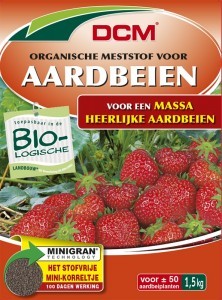Chemical or mineral fertilisers are manmade. They contain no organic, animal or vegetable material. If the prescribed dose is not respected, this type of fertiliser can burn your plants.
FERTILISERS
Just like us, the plants, berries and vegetables in your garden need nutrition. People walking on the grass and mowing also require a lot of energy from your lawn. If you want to keep your grass in great shape, you need some additional fertiliser.
Fertilisers mainly contain plant nutrients.
Applying fertiliser:
- Improves growth and crop development
- Increases flowering and/or fruiting
- Promotes resistance to pests and diseases
Fertilisers are available in liquid and solid form and can be organic or chemical, simple or complex, quick-release and slow-release.
Organic fertilisers are composed entirely of natural nutrients without any added chemicals. These fertilisers have a gentle, sustained effect. Natural sources include blood meal, seaweed, bone meal, lava meal and cocoa shells.
Compound fertilisers use natural ingredients enriched with chemical substances for a quicker effect. Compound fertilisers with mineral and organic elements contain at least 25% organic matter. The organic components in this fertiliser enrich the humus in the soil.
Straight fertilisers rely on a single nutrient, such as blood meal (nitrogen), bone (phosphorus) or potassium as the active ingredient.
Do you know which nutrients your fertiliser contains and what they do?
- Nitrogen (N) encourages cell division (growth).
- Phosphorus (P) promotes root formation and proper hardening of the plant.
- Potassium (K) improves the formation of fruits and heads and enhances sturdiness. Potassium improves the root’s fluid intake and reduces loss of moisture from the leaves. This makes the plant less susceptible to drought and other weather conditions such as frost.
Potassium deficiency is characterised by dieback starting at the leaf edges.
- Magnesium (Mg) is responsible for the plant’s green colour.
- Iron (F), Manganese (Mn) and Boron (B) prevent deficiency diseases (trace elements present in very small amounts only).








